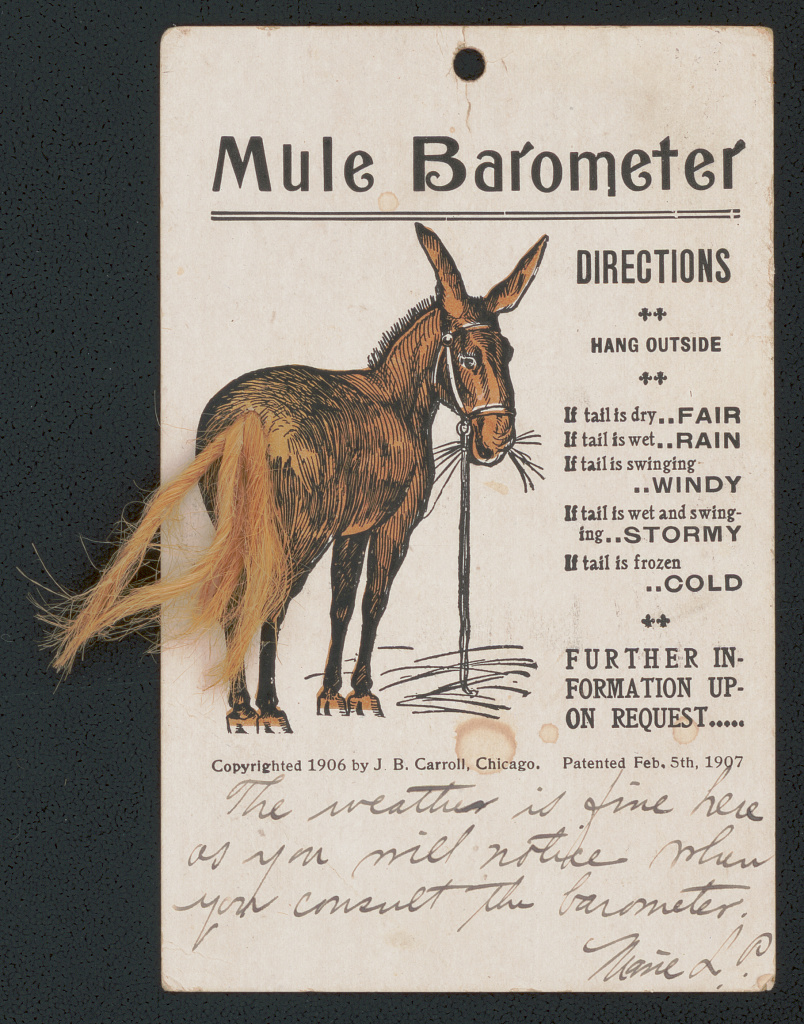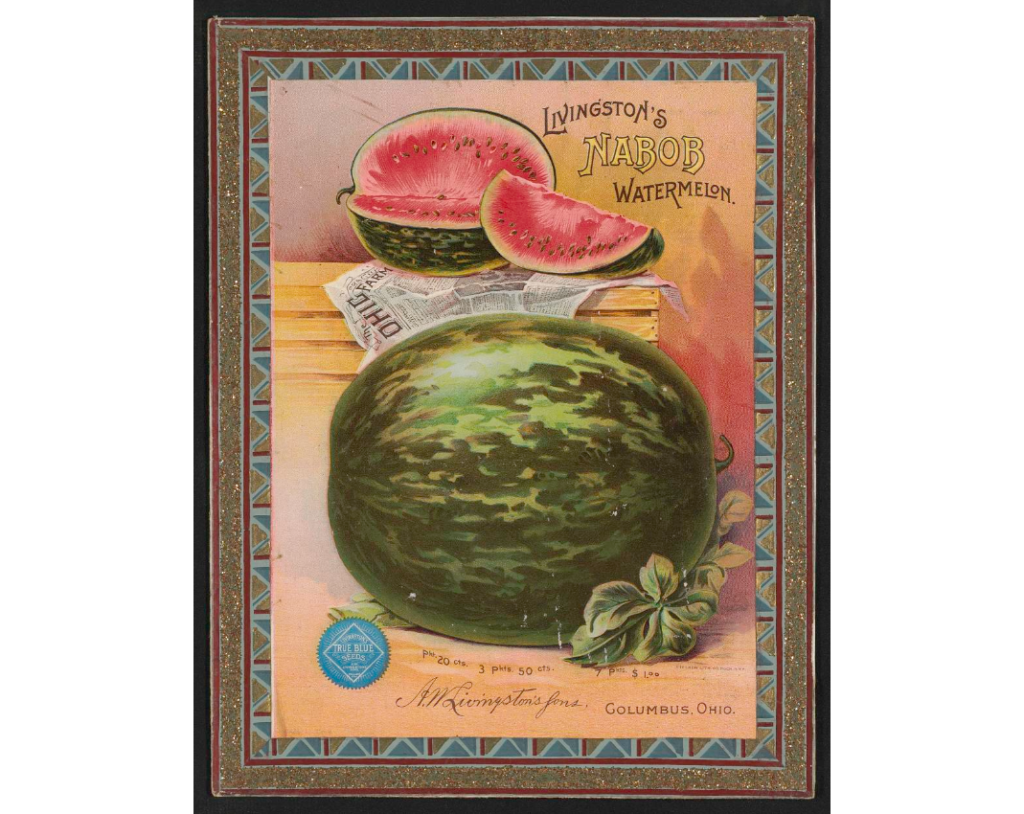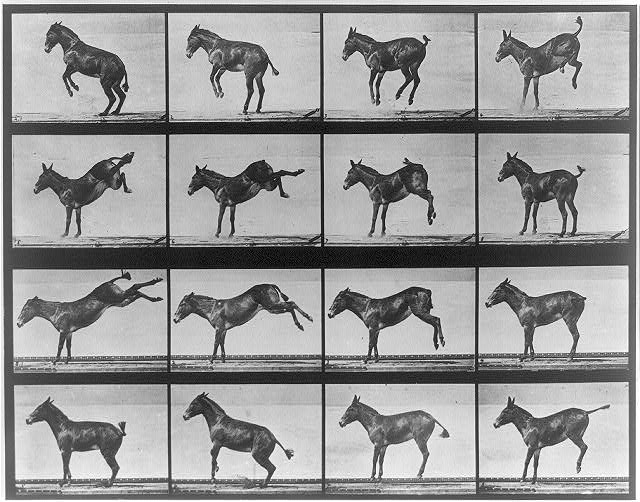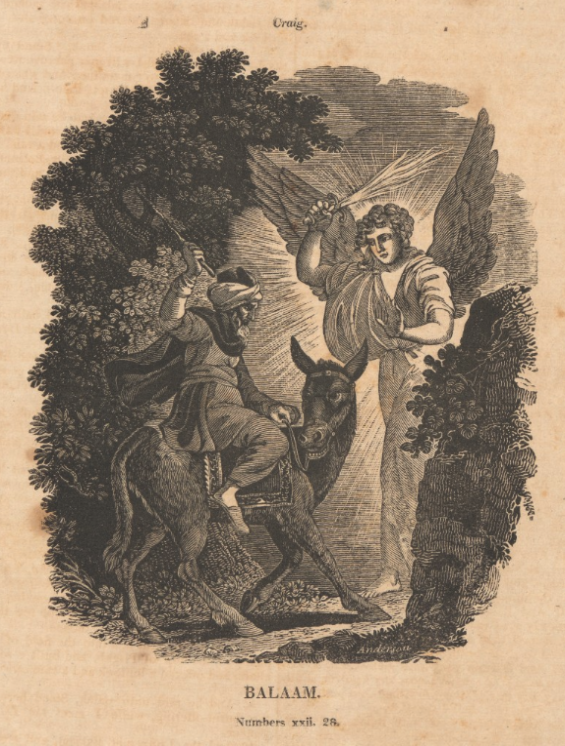Behind a Georgia Mule
By James Weldon Johnson
Annotations by Rene Marzuk

Now if you wish to travel fast
I beg you not to fool
With locomotion that's procured
Behind a Georgia mule.[1]
When I was teaching school in the backwoods of Georgia I had, one day, to attend to some business in Mudville, an embryo city about eleven miles from my school. Now you must know that a country school teacher can do nothing without first consulting his Board of Trustees; so I notified that honorable body that there was some business of vast importance to be attended to, and asked them to meet me on Friday afternoon; they all promised to be on hand “two hours b’sun.”[2] Friday afternoon, after school was dismissed, they came in one by one until they had all gathered.
As the chairman called the meeting to order, he said: “Bredren, de objick ob dis meeting is to consider de ways ob pervidin de means ob transposing de ‘fessar to Mudville.”[3] Now, by the way, the chairman of the Board was undoubtedly intended by nature for a smart man. He had a very strong weakness for using big words in the wrong place, and thought it his special duty to impress the “’fessar” at all times with his knowledge of the dictionary. Well, after much debate it was finally decided that “Brudder” Whitesides would “furnish the mule” and “Brudder Jinks de buggy” and that I should start early the next morning.
The next morning I was up quite early, because I wished to start as soon as possible in order to avoid the heat of the day. I ate breakfast and waited—six o’clock, seven o’clock, eight o’clock—and still that promised beast had not put in appearance. Knowing the proclivity of the mule to meander along as his own sweet will dictates, especially when the sun shines hot, I began to despair of reaching Mudville at all that day; but “Brudder” Jinks, with whom I boarded, seeing my melancholy state of mind, offered to hitch up Gypsy, an antiquated specimen of the mule, whose general appearance was that of the skeleton of some prehistoric animal one sees in a museum.
I accepted this proposition with haste, and repented at leisure.
I could see a weary, long-suffering look in that mule’s eye, and I could imagine how his heart must have sought the vicinity of his tail, when they disturbed his dreams of green fields and pleasant pastures, and hitched him to an old buggy, to encounter the stern realities of a dusty road. “Verily, verily,” I soliloquized, “the way of the mule is hard.” But, putting aside all tender feelings, I jumped into the buggy and grasping a stick of quite ample proportions began to urge his muleship on his way.
Nothing of much consequence hampered our onward journey except the breaking down of three wheels and the excessive heat of the sun, which great luminary seemed not more than ninety-five miles away.
I arrived at Mudville sometime between 12 [P.?]M. and 6 P.M. After having finished my business and having bountifully fed my mule on water and what grass he could nibble from around his hitching post, I bought a large watermelon and started for home. Before I was out of sight of the town, I began to have serious misgivings about reaching home before a very late hour. In the morning by various admonitions and applications of the hickory, I had been able to get my mule into a jog trot, but on the homeward journey he would not even get up to a respectable walk. Well, we trudged on for two hours or more, when to my dismay he stopped,—stopped still. As the hour was getting late and it was growing dark, I began advising him—with the hickory—that it was best to proceed, but he seemed to have hardened his heart, and his back also, and paid me no heed. There I sat—all was as still as the grave, save for the dismal hoot of the screech-owl.[4] There I was, five and a half miles from home with no prospect of getting there.

I began to coax my mule with some words which perhaps are not in the Sabbath School books, and to emphasize them with the rising and falling inflection of the stick across his back; but still he moved not. Then all at once my conscience smote me. I thought perhaps the faithful beast might be sick. My mind reverted to Balaam, whose beast spoke to him when he had smitten him but three times and here I had smitten my beast about 3,333 times. I listened almost in expectation of hearing say, “Johnson, Johnson, why smites thou me 3,333 times?”[5]
I got out of the buggy and looked at the mule; he gazed at me with a sad far-away expression in his eye, which sent pangs of remorse to my heart. I thought of the cruel treatment I had given him, and on the impulse of the moment I went to the buggy, got out my large, luscious melon, burst it open and laid it on the ground before the poor animal; and I firmly resolved to be a friend of the mule ever after, and to join the Humane Society as soon as I reached Atlanta.[6]
As I watched that mule slowly munching away at my melon, I began to wonder if I had not acted a little too hastily in giving it to him, but I smothered that thought when I remembered the pledge I had just taken. When he had finished he looked around with a satisfied air which encouraged me; so I took hold of his bridle and after stroking him gently for a moment, attempted to lead him off. But he refused to be led. He looked at me from under his shabby eyebrows, but the sad, far-away expression had vanished and in its stead was a mischievous gleam, born of malice afore-thought.[7] I remonstrated with him, but it only seemed to confirm his convictions that it was right for him to stand there. I thought of my melon he had just devoured; then I grew wrathy, and right there and then renounce all my Humane Society resolutions, and began to shower down on that mule torrents of abuse and hickory also, but all to no effect. Instead of advancing he began to “revance.” I pulled on the bridle until my hands and arms were sore, but he only continued to back and pull me along with him. When I stopped pulling he stopped backing, and so things went on for the space of about half an hour.
I wondered what time was. Just then the moon began to rise, from which I knew it was about 9 o’clock. My physical exertion began to tell on me and I hungered. Oh, how I hungered for a piece of that watermelon! And I hit the mule an extra blow as a result of those longings.
I was now desperate. I sat down on the side of the road and groaned; that groan came from the depths of my soul, and I know that I presented a perfect picture of despair. However, I determined to gather all my remaining strength for one final effort; so I caressed him up and down the backbone two or three times as a sort of persuader, then grasping the bridle with both hands, I began to pull, pull as hard as I had never pulled before and as I never hope to pull again. And he began to back. I continued to pull and he continued to back.
How long this order of things might have gone on I do not know, but just then a brilliant idea struck me so forcibly as to come near knocking me down. I took the mule out, and by various tying, buckling and tangling, I hitched him up again, upside down, or wrong side out, or, well, I can’t exactly explain, but anyhow when I got through his tail pointed in the direction I wanted him to go. Then I got back in the buggy and taking hold of the bridle began to pull, and he began to back; and I continued to pull, and he continued to back; and will you believe me, that mule backed all the way home! It is true we did not travel very fast but every time he would slow down, I would put a little extra force into my pull and he would put a little extra speed into his back. Ever and anon he would glance at me with that mischievous, malicious twinkle, which seemed to say “I’ve got you tonight,” and I would smile back a quiet, self-satisfied smile and give an extra pull.
But when we got home, that mischievous, malicious twinkle changed, and he looked at me in a dazed sort of way and I smiled back quite audibly. And do you know, that mule has been in a dark brown study ever since.[8] He is trying to get through his slow brain how I managed to make him pull me home that night.
As I jumped out of the buggy the clock struck twelve. And there at that solemn hour of the night, as the pale moon shed her silvery beams all around and as the bright stars peeped down upon me from the ethereal blue, and the gentle zephyrs wafted to me the odor of a hog-pen in the near distance, I vowed a vow, an awful vow, that so long as I breathed the vital air, never, no, never again, would I attempt to drive a Georgia mule.

Johnson, James weldon. “behind A Georgia mule,” in the upward path: a reader for colored children, ed. myron t. pritchard and mary white ovington, 66-72. harcourt, brace and howe, 1920.
[1] Mules are the offspring of a male donkey and a female horse. They are mostly infertile.
[2] Perhaps “before sundown.”
[3] ‘fessar: i.e. professor.
[4] The Eastern Screech Owl is Georgia’s most common owl. This strictly nocturnal bird is often more heard than seen.
[5] Balaam is a non-Israelite prophet featured in the Bible’s Old Testament’s Book of Numbers. While riding his donkey on his way to Moab (modern Jordan), an angel that only his donkey could see blocked their way. When the animal refused to continue, Balaam beat it three times with a staff until the donkey addressed him and asked him why.

[6] Probably a reference to the American Humane Society, founded in 1877 to promote the humane treatment of children and animals.
[7] Premeditated; deliberate.
[8] A state of deep reverie or intense thought. The term “brown study” seems to have appeared first in the sixteenth century and came into regular usage in the nineteenth century.
Contexts
Weldon Johnson wrote this autobiographical piece during the Jim Crow Era, when Southern schools were racially segregated and extremely unequal. In addition to being a writer and an educator, Weldon Johnson was a civil rights activist and a leader of the NAACP.
Definitions from Oxford English Dictionary:
- coax: To influence or persuade by caresses, flattery, or blandishment.
- ever and anon: Ever and again, every now and then; continually at intervals.
- hamper: To obstruct the free movement of (a person or animal), by fastening something on, or by material obstacles or entanglements.
- hickory: The wood of a North America hickory tree. Also, a stick or switch made of hickory (or sometimes another wood).
- wrathy: Feeling, or inclined to, wrath; wrathful, very angry, incensed.
- zephyr: The west wind.
Resources for Further Study
- A brief history of Jim Crow.
- Website for the American Humane Society.